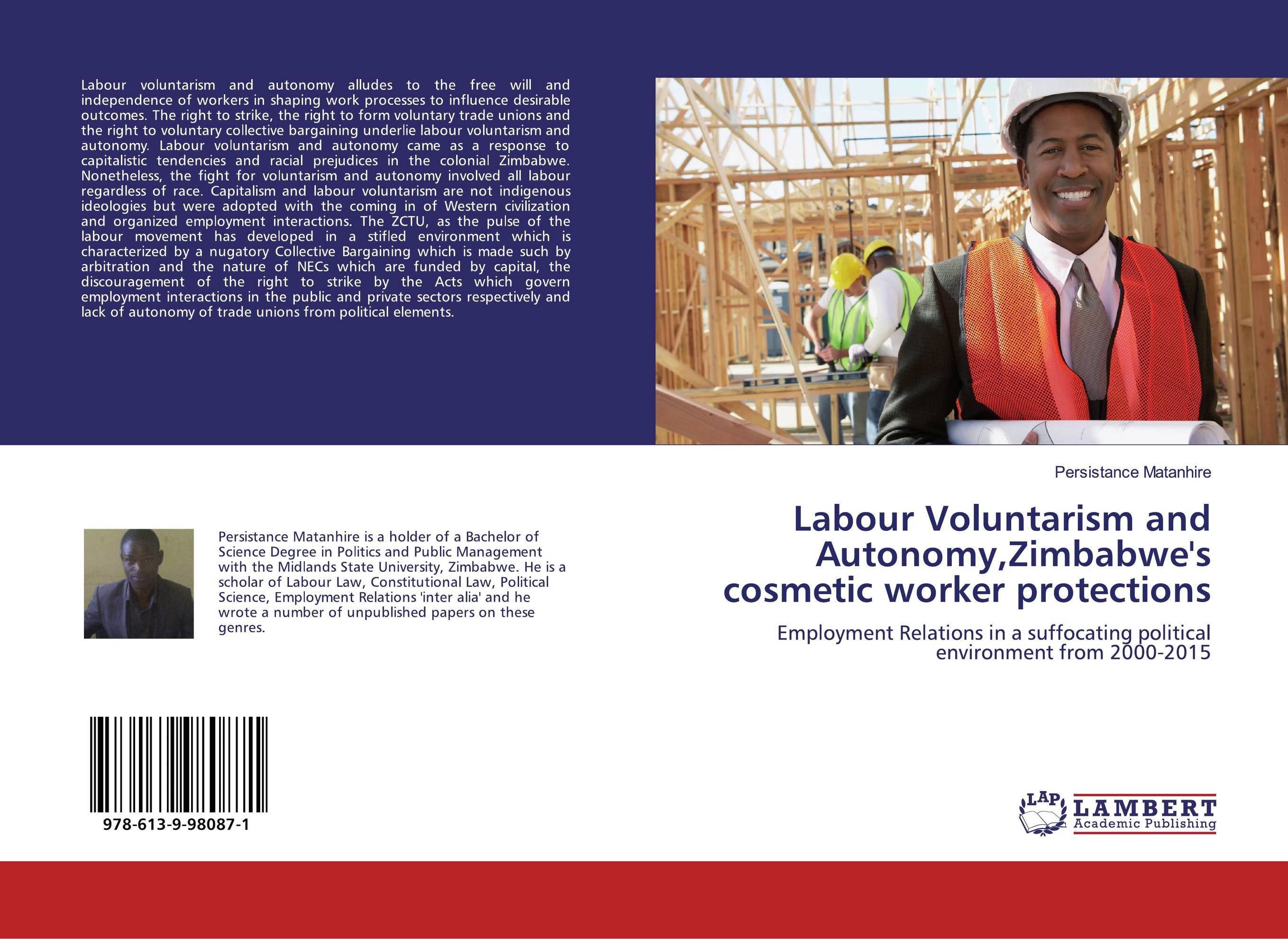| Поиск по каталогу |
|
(строгое соответствие)
|
- Профессиональная
- Научно-популярная
- Художественная
- Публицистика
- Детская
- Искусство
- Хобби, семья, дом
- Спорт
- Путеводители
- Блокноты, тетради, открытки
Labour Voluntarism and Autonomy,Zimbabwe's cosmetic worker protections. Employment Relations in a suffocating political environment from 2000-2015

В наличии
| Местонахождение: Алматы | Состояние экземпляра: новый |

Бумажная
версия
версия
Автор: Persistance Matanhire
ISBN: 9786139980871
Год издания: 2019
Формат книги: 60×90/16 (145×215 мм)
Количество страниц: 92
Издательство: LAP LAMBERT Academic Publishing
Цена: 31605 тг
Положить в корзину
Позиции в рубрикаторе
Отрасли знаний:Код товара: 228741
| Способы доставки в город Алматы * комплектация (срок до отгрузки) не более 2 рабочих дней |
| Самовывоз из города Алматы (пункты самовывоза партнёра CDEK) |
| Курьерская доставка CDEK из города Москва |
| Доставка Почтой России из города Москва |
Аннотация: Labour voluntarism and autonomy alludes to the free will and independence of workers in shaping work processes to influence desirable outcomes. The right to strike, the right to form voluntary trade unions and the right to voluntary collective bargaining underlie labour voluntarism and autonomy. Labour voluntarism and autonomy came as a response to capitalistic tendencies and racial prejudices in the colonial Zimbabwe. Nonetheless, the fight for voluntarism and autonomy involved all labour regardless of race. Capitalism and labour voluntarism are not indigenous ideologies but were adopted with the coming in of Western civilization and organized employment interactions. The ZCTU, as the pulse of the labour movement has developed in a stifled environment which is characterized by a nugatory Collective Bargaining which is made such by arbitration and the nature of NECs which are funded by capital, the discouragement of the right to strike by the Acts which govern employment interactions in the public and private sectors respectively and lack of autonomy of trade unions from political elements.
Ключевые слова: labour, voluntarism, Autonomy, Zimbabwe



